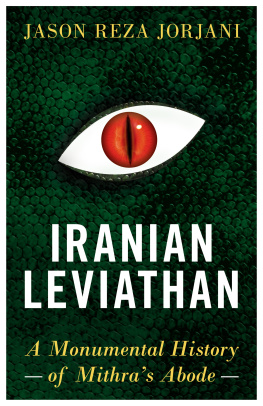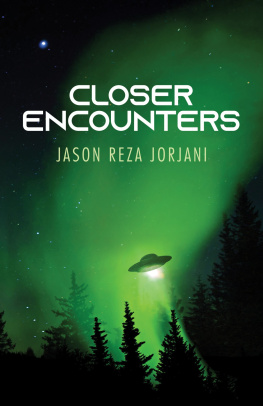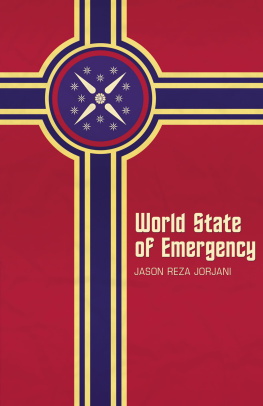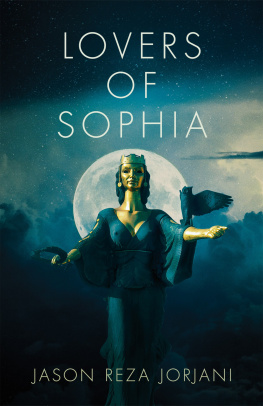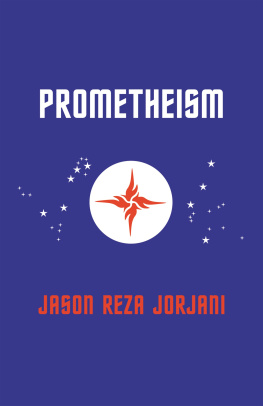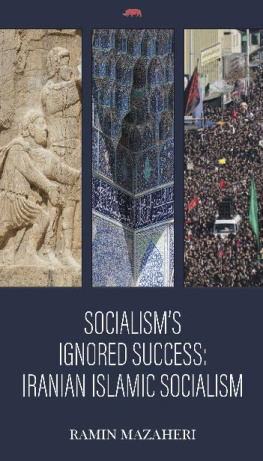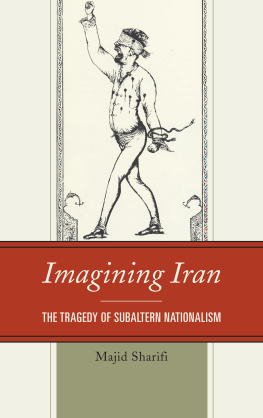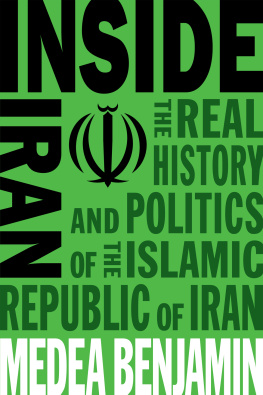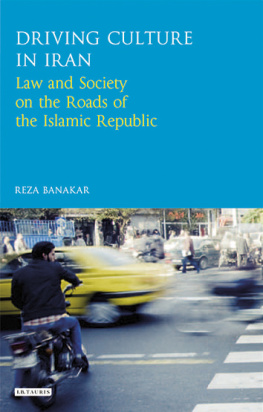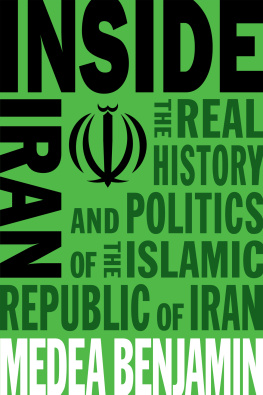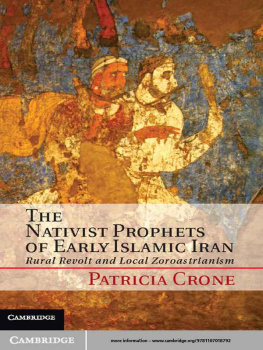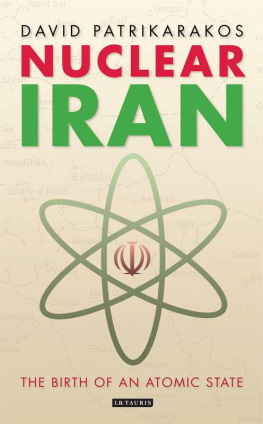
Arktos
London 2019

Copyright 2019 by Arktos Media Ltd.
All rights reserved. No part of this book may be reproduced or utilised in any form or by any means (whether electronic or mechanical), including photocopying, recording or by any information storage and retrieval system, without permission in writing from the publisher.
Arktos.com | Facebook | Twitter | Instagram | Gab.ai | Minds.com | YouTube
ISBN
978-1-912975-40-2 (Softcover)
978-1-912975-41-9 (Hardcover)
978-1-912975-42-6 (Ebook)
Editing and Layout
John Bruce Leonard
Cover
Tor Westman
This book is dedicated to my muse and beloved fiance,
NASSIM NOURI
Who spellbindingly safeguarded my faith, hope, and love
For her mother country and my fatherland.
Iran owes this one to you, Archaeon.
Should sorrow send forth an army that spills the blood of lovers,
Mithras wine-bearing maiden and I shall conspire to scale the sky,
piercing heavens dome and drawing down a new design!
Hafez of Shiraz
Introduction
A few countries are more than mere nations. They have been translated from the earthly plane into the spectral geography of ideas. As Rome is irreducible to Italy, and the modern state of Israel is only a reemergence of Zion into the mundane world, Iran is far more than the nation-state that foreigners once widely referred to as Persia. Iran is an immortal ideaa terrible thought in the mind of the gods ( devs , divs ). Iran is destined to reemerge as the Leviathan from amongst all of Earths great nations.
Until 1935, Iran was referred to internationally as Persia (or La Perse ), and the Iranian people were broadly identified as Persians. This was the case despite the fact that Persians always referred to themselves as Iranians ( Irni ) and used the term Irnshahr (Old Persian Aryna Khashatra ) or Aryan Imperium in order to designate what Westerners call the Persian Empire. The adjective Persian ( Prsi ) has only been used by Iranians to describe the national language of Iran, which has been spoken, and especially written, by all Iranians regardless of whether it is their mother tongue. The Persian heritage is at the core of Iranian Civilization.
Civilizations are not as narrow as particular cultures in their ideological orientation. Even cultures evolve and are not defined by a single worldview in the way that a political party has a definite ideology. The inner dialectic that drives the historical evolution of Iranian Civilization is based on a tension between rival worldviews. This is comparable to the numerous worldview clashes that have shaped and reshaped Western Civilization, and is more dynamic than the creative tension between the worldviews of Confucianism, Taoism, Buddhism, and Communism and the cultural characters of the Han, the Manchurians, Mongols, and Tibetans in the history of Chinese Civilization.
The phrase Iranian Civilization has long been in use by academics in the field of Iranology or Iranian Studies. That there is an entire scholarly field of Iranology at all attests to the world-historical importance of Iran. However, in the public sphere, and even among other academics, Iran has rarely been recognized as a distinct civilization alongside the other major civilizations of world history. Rather, Iran has for the most part been mistakenly amalgamated into the false construct of Islamic Civilization. We have entered the era of a clash of civilizations rather than a conflict between nation-states. Consequently, the recognition of Iran as a distinct civilization, one that far predates the advent of Islam and is now evolving beyond the Islamic religion, would be of decisive significance for the post-national outcome of a Third World War.
Iran is a civilization that includes a number of different cultures and languages that hang together around a core defined by the Persian language and imperial heritage. Besides the Persian heartland, Iranian Civilization encompasses Kurdistan (including the parts of it in the artificial states of Turkey and Iraq), the Caucasus (especially northern Azerbaijan and Ossetia), Greater Tajikistan (including northern Afghanistan and Eastern Uzbekistan), the Pashtun territories (in the failed state of Afghanistan), and Baluchistan (including the parts of it inside the artificial state of Pakistan). As we shall see, Iranian Civilization deeply impacted Western Civilization, with which it shares common Indo-European roots. There are still a few countries in Europe that are so fundamentally defined by the legacy of the Iranian Alans, Sarmatians, or Scythians that they really belong within the scope of Iranian, rather than European or Western Civilization. These are Ukraine, Bulgaria, Croatia, and, should it ever secede from Spain, Catalonia. The belonging of these European, Caucasian, Middle Eastern, Central Asian, and South Asian ethnicities and territories to an Iranian civilizational sphere is, by analogy, comparable to how Spain, France, Britain, Germany, and Italy are all a part of Western Civilization.
An even closer analogy would be to China, which is also a civilization rather than simply a nation. China, considered as a civilization, includes many cultures and languages other than that of the dominant Han Chinesefor example, the Manchurians, Mongolians, and Tibetans. What is interesting about China, in this regard, is that its current political administration encompasses almost its entire civilizational spherewith the one exception of Taiwan (and perhaps Singapore). In other words, as it stands, Chinese Civilization has nearly attained maximal political unity. Western Civilization also has a high degree of political unity, albeit not at the level of China. The Western world is bound together by supranational economic and military treaties such as the European Union (EU) and the North Atlantic Treaty Organization (NATO). By contrast, the present political unity of Iranian Civilization is currently near its lowest level in a history spanning at least 3,000 years.
To borrow a term from the Russian philosopher, Alexander Dugin, the Persian ethnicity and language could be described as the narod or pith of Iranian Civilization. This would be comparable to the role of the Mandarin language and the Han ethnicity in contemporary Chinese Civilization, or to the role of Latin and the Italian ethnicity in Western Civilization at the zenith of the Roman Empire when Marcus Aurelius had conquered and integrated Britain and Germany. Although I accept Samuel Huntingtons concept of a clash of civilizations, I reject his distinction between what he calls Classical Civilization and Western Civilization. This is a distinction that he adopts from Arnold Toynbee, and perhaps also Oswald Spengler, both of whom see the origins of Western Civilization in Medieval Europe. In my view, Western Civilization begins with Classical Greece and is adopted and adapted by Pagan Rome.
The narod of a civilization can change. If Western Civilization were to prove capable of salvaging itself and reasserting its global dominance in the form of a planetary American Empire, this would no doubt involve a shift to the English language and the Anglo-Saxon ethnicity as the Western narod . The lack of a clear narod in Western Civilization at present is symptomatic of its decline and dissolution following the intra-civilizational war that prevented Greater Germany from becoming the ethno-linguistic core of the entire West. A very strong argument could be made that Germany and the German language were long destined to succeed Italy in this role, which Italy still plays to some extent through the Vaticans patronage of Latin and the Roman Catholic faith. The alliance of Hitler with Mussolini could have prepared for such a transition. If, for whatever reason, Latin America were to one day become the refuge of Europeans and even Anglo-Saxons fleeing Europe and North America, there would be a very good chance that the Spaniard ethnicity and the Spanish language would become the narod of Western Civilization following this transformative crisis.
Next page
